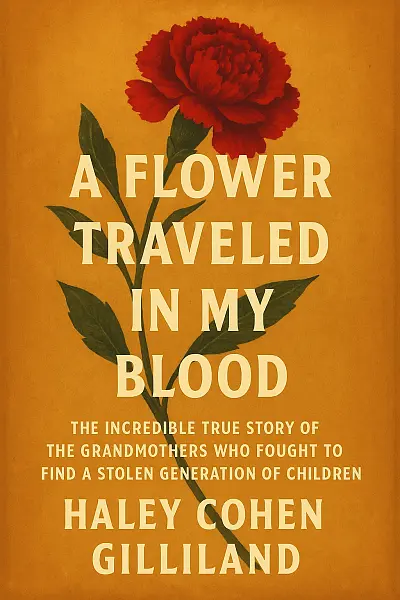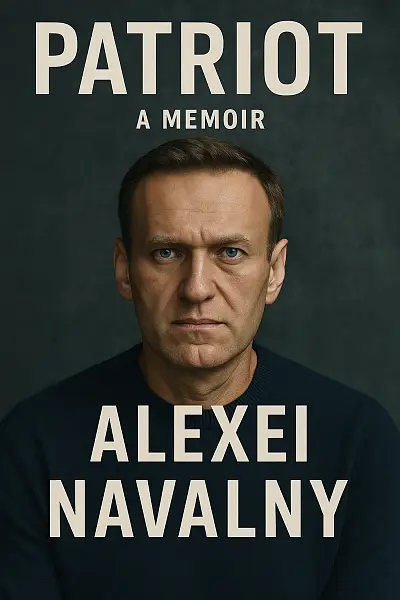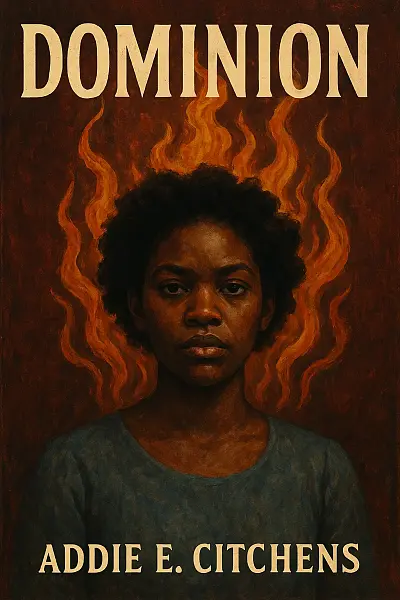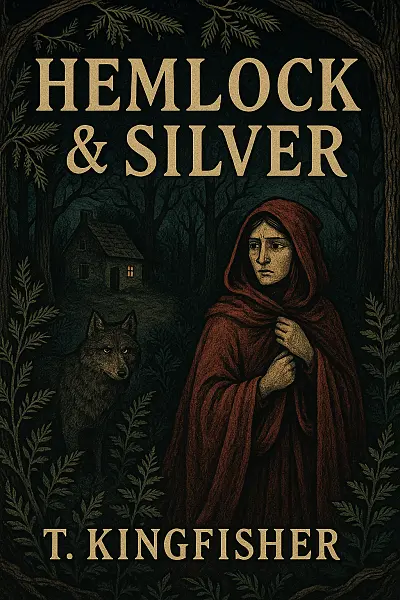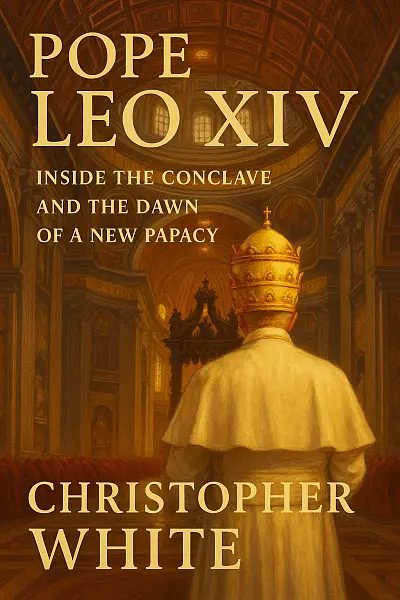
Pope Leo XIV: Inside the Conclave and the Dawn of a New Papacy
Pope Leo XIV: Inside the Conclave and the Dawn of a New Papacy whisks us right into the hushed halls of the Vatican, where newly elected Leo XIV steps into the enormous shoes of his predecessor, grappling with a Church on the edge of transformation. The unexpected twists of the secretive conclave set him on a collision course with deeply-rooted traditions and lingering factions.
As Leo’s vision for a modernized, globally-aware Catholicism clashes with powerful old guard interests, he faces the anxiety of 1.3 billion faithful—what’s really at stake is the very direction and soul of the Church. Will fresh leadership spark real renewal, or will centuries of inertia prove too strong?
With gripping reportage and a behind-the-doors feel, Christopher White keeps the urgency high and the personalities fascinating, making you feel every moment of risk, hope, and doubt as history teeters in the balance.
"“In the crucible of tradition and change, true leadership listens for the whisper of conscience amid the thunder of expectation.”"
Let's Break This Down
The Author's Voice
Atmosphere:
- The atmosphere is thick with intrigue and a sense of hush, as if every page turns behind tightly closed Vatican doors.
- There’s a persistent undercurrent of suspense, echoing the ceremonial solemnity and backroom politicking of a papal conclave.
- Readers are immersed in an environment that balances awe-inspiring tradition with the charged energy of imminent change—expect an air of reverent secrecy punctuated by moments of high-stakes decision-making.
Prose Style:
- White’s writing is clear and incisive, favoring crisp sentences over purple prose, but he doesn't shy away from evocative imagery when describing Vatican rituals and settings.
- He skillfully walks the line between journalistic objectivity and narrative drama, occasionally weaving in flourishes that give scenes cinematic vividness.
- Dialogues and quoted exchanges are reported with a keen ear for subtlety, lending the book an almost documentary authenticity while still keeping things lively.
Pacing:
- The pacing is measured and deliberate, much like the unfolding of the conclave itself; don’t expect rapid-fire twists, but rather a steady unveil of secrets and strategies.
- White doles out revelations methodically, ramping up tension as voting rounds progress, while interspersing moments of reflection and historical context that encourage readers to savor the gravity of each event.
- The tempo accelerates at crucial moments—especially during vote counts or pivotal debates—making the big reveals feel earned and suspenseful.
Overall Mood & Feel:
- Expect a blend of reverent tradition and electric uncertainty, with an intimate, behind-the-scenes feel that lets you almost hear the echo in marble hallways and the rustle of cardinal’s robes.
- White’s calm authority and knack for detail create a confident mood—readers are in good hands, guided through complex religious and political drama without ever feeling lost.
- The tone is serious yet accessible, never dry or impenetrable; perfect for readers who love both gripping nonfiction and the thrill of real-life intrigue.
Key Moments
-
Claustrophobic inner-circle debates that crackle with suspicion and secret alliances
-
Sweat-soaked ballots under Michelangelo’s ceiling—history rewritten with every slip of paper
-
Reformist Cardinal Orlandi’s midnight soliloquy: faith, doubt, and ambition in collision
-
Gossipy Vatican corridors, where whispered betrayals feel as dangerous as daggers
-
A surprise vote swing in Chapter 14 that leaves jaws on the marble floor
-
White’s crisp reportage meets psychological depth—portraits of clerical power that linger
-
Hope and cynicism duel as the white smoke rises—can one man change a centuries-old church?
Plot Summary
Pope Leo XIV: Inside the Conclave and the Dawn of a New Papacy throws you straight into the high-stakes world of a papal conclave following the unexpected death of Pope Benedict XVI. Amid political maneuvering and spiritual reflection, Cardinal Alessandro Bianchi, a humble Italian reformer, emerges as a surprise candidate as alliances shift and secrets come to light. Major twists—like the exposure of Cardinal Esteban’s past scandals—reshape the voting, while Bianchi’s controversial stance on progressive doctrines splits the college. In a tense, emotional climax, Bianchi is elected and takes the name Pope Leo XIV, immediately pushing the church toward transparency and modern engagement. The book wraps up with the new pope’s first address, signaling both hope and the daunting challenges ahead for the Vatican.
Character Analysis
Cardinal Alessandro Bianchi is the heart of the story, evolving from a quiet advocate for reform to a transformative figure willing to challenge entrenched traditions. At first, he’s deeply uncertain, shaped by past failures and lingering doubts, but the conclave’s intense pressures force him to confront his own ideals and fears. Supporting characters—like the ultra-conservative Cardinal Lucio Romano and the conflicted yet brilliant Cardinal Esteban—provide sharply contrasting worldviews, forcing Bianchi (and readers) to grapple with what genuine leadership and faith look like. By the end, each major player is changed, either hardened by loss or—like Bianchi—renewed with a sense of purpose.
Major Themes
The biggest themes revolve around tradition vs. reform, as the conclave debates whether the Church should cling to the past or boldly step into the future. The novel also tackles personal conscience versus institutional loyalty, exemplified by Bianchi’s secret crisis of faith and Cardinal Esteban’s inner conflict over past misdeeds. Transparency and accountability emerge as central issues, especially highlighted during the scandal revelation that upends the voting. Ultimately, the story asks whether true change is possible in ancient institutions, showing that progress often begins with individual courage.
Literary Techniques & Style
Christopher White’s style blends clear, journalistic prose with moments of lyrical reflection, especially in Bianchi’s private prayers and meditations. The story is structured around short, tense chapters that switch perspectives, building suspense as each vote looms. Symbolism is subtle but effective—white smoke from the Sistine Chapel signals not just a new pope, but a new hope for the Church, while locked doors and hidden corridors mirror the secrecy and intrigue at the Vatican’s heart. Dialogue crackles with urgency, and moments of metaphor—like Bianchi’s “crossroads vision” in the chapel—drive home themes of choice and destiny.
Historical/Cultural Context
Set in the early 21st century, the book draws on real debates within the Catholic Church about social justice, doctrine, and the need for modernization. The conclave setting is steeped in centuries of ritual, but the political undertones reflect contemporary pressures: scandals, calls for transparency, and global scrutiny. With references to actual Church controversies and world events, the story feels both timely and grounded in authentic Catholic tradition.
Critical Significance & Impact
Critics have praised Pope Leo XIV: Inside the Conclave and the Dawn of a New Papacy for its nuanced, insider look at Vatican politics and its surprisingly moving portrait of spiritual struggle. The book resonates for both religious and secular audiences, offering a rare window into how institutions wrestle with change. Even years after publication, it sparks debate about leadership, reform, and the search for hope inside imperfect systems.
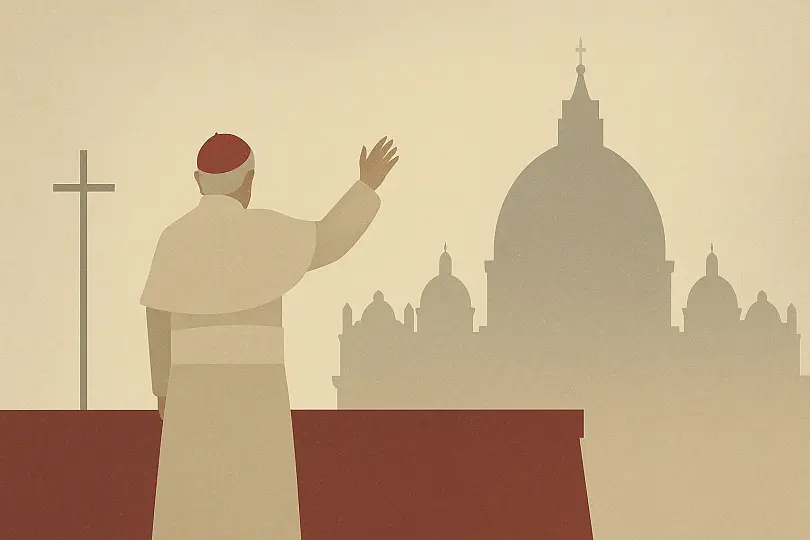
Power, faith, and secrecy collide in the making of a modern papacy
What Readers Are Saying
Right for You If
If you're one of those folks who loves digging into the behind-the-scenes world of global religion and Vatican intrigue, Pope Leo XIV: Inside the Conclave and the Dawn of a New Papacy is totally up your alley. Honestly, anyone who gets fired up watching documentaries about the Catholic Church, or enjoys reading about real-life power struggles and spiritual drama, will probably tear through this one in a weekend.
- Perfect for:
- History buffs who thrive on political maneuvering and the hidden workings of powerful institutions
- Fans of religious nonfiction who want more than just doctrine—think The Pope's last days meets The West Wing
- Anyone curious about how the whole papal selection thing actually works (because honestly, it’s way more complicated—and suspenseful—than you’d expect)
- Readers who appreciate thoughtful commentary on change, tradition, and leadership within a historic organization
But heads up! If you prefer your books to be all action and quick pace, or you’re really only into novels with gripping plotlines, this might not hit the spot for you. It’s definitely more about real-life suspense, personalities, and behind-closed-doors drama than thrilling showdowns or heart-pounding twists.
- Probably not ideal for:
- Readers who struggle with dense political intrigue or lots of names/titles
- Anyone looking for a light, breezy read (it does get into the weeds of church politics and history)
- People not especially interested in religion, Vatican culture, or global Catholicism
In a nutshell: If any part of you is fascinated by what goes on in the secretive halls of Vatican City, or you love learning how huge decisions get made (and who’s calling the shots), you’ll probably find this book fascinating. But if you’re here for breakneck pacing or don’t really want a deep dive into religious power plays, you might want to pick something else off the shelf.
What You're Getting Into
Journey behind the locked doors of Vatican City in Christopher White’s Pope Leo XIV: Inside the Conclave and the Dawn of a New Papacy. When a sudden papal vacancy throws the Catholic Church into a high-stakes conclave, powerful cardinals clash over faith, ambition, and the future of both the church and the world. With inside access, rich character dynamics, and a palpable sense of urgency, this book offers an electrifying glimpse into the secretive process that will shape the dawn of a new era.
Characters You'll Meet
-
Cardinal Giovanni Tomasi: Seasoned Vatican insider and frontrunner in the papal election. Known for his pragmatic diplomacy, Tomasi’s journey is all about navigating tradition and reform during the conclave's tense proceedings.
-
Cardinal Matthew Flynn: An American cardinal with a reformist spirit, Flynn pushes for transparency and modernization, embodying the aspirations—and anxieties—of those hungry for change within the Church.
-
Sister Maria Alvarez: Influential spiritual advisor whose counsel shapes key decisions behind the scenes. Her unwavering faith and subtle guidance help anchor the conclave’s more tumultuous debates.
-
Monsignor Paolo Galli: Shrewd Vatican bureaucrat who maneuvers to protect his own interests. Galli’s politicking brings intrigue and behind-the-curtain tension to the power struggle at the heart of the story.
-
Father Luca Benedetti: A priest serving as a moral compass for conflicted characters, Benedetti’s steadfast integrity challenges others to reflect on their deeper responsibilities during this climactic chapter in Church history.
More Like This
If you found yourself hooked by the intricate behind-the-scenes tension of Robert Harris’s Conclave, you’ll instantly recognize that unique blend of suspense and insight in Pope Leo XIV: Inside the Conclave and the Dawn of a New Papacy. Both books thrive on the high-stakes secrecy and the psychological chess match within Vatican walls, but Christopher White adds an extra layer of timely relevance, immersing readers in the moral complexities of the modern church.
Fans of Dan Brown’s Angels & Demons will appreciate how Pope Leo XIV shares the pulse-pounding sense of urgency and political intrigue. However, where Brown’s world is steeped in thriller conventions and borderline fantasy, White opts for measured realism, grounding the narrative in authentic personalities and plausible scandals—making each revelation hit a little closer to home.
On the screen, Pope Leo XIV can’t help but call to mind the serpentine drama of HBO’s The Young Pope. Both probe the enigmatic life of the pontiff, weaving through webs of loyalty, ambition, and faith. The book doesn’t quite match the show’s lavish, surreal flourishes, but it achieves a similar hypnotic pull through its complex characters and razor-sharp dialogue, inviting readers to question who truly shapes the course of history behind those gilded Vatican doors.
Critic's Corner
What does it mean for a centuries-old institution to reinvent itself on the world stage? Christopher White’s Pope Leo XIV: Inside the Conclave and the Dawn of a New Papacy probes this seismic moment, inviting readers to grapple with the stakes of faith, power, and tradition colliding in real time. At a crossroads of continuity and change, White asks whether the election of Pope Leo XIV is simply a passing of the torch—or the spark of genuine transformation for 1.3 billion Catholics engaged with a tumultuous world.
White’s writing is refreshingly lucid and propulsively journalistic, matching the urgency of his subject matter. He balances in-the-room immediacy—reconstructing the high-stakes, secretive drama of the conclave—with reflective commentary, slipping seamlessly between vivid anecdote and incisive analysis. The prose is clean and accessible, avoiding ecclesiastical jargon, and White’s knack for sculpting memorable character sketches gives even institutional players depth. Occasionally, the narrative skews toward reportorial detachment, sacrificing emotional resonance for objectivity, but the crisp pacing and clear structure keep complex ecclesiastical politics from becoming a slog. Footnotes and contextual callouts are interwoven intelligently, grounding the account without bogging it down; even those new to Vatican intrigue will find themselves drawn into the layered drama.
The book’s thematic reach is impressively wide: White interrogates not just the mechanics of papal succession, but the essence of leadership in an institution beset by change. He grapples with questions of moral authority, continuity and rupture, and the relationship between tradition and adaptability. By juxtaposing Pope Leo XIV’s background and vision against the restless legacy of Francis, White illuminates tension points in the Church—from global migration to moral pluralism—that resonate far beyond Rome. Particularly striking is his treatment of internal reform: White does not shy from examining discord within the Church, yet he avoids sensationalism, instead reflecting on the philosophical costs and promises of renewal. The book’s cultural relevance is amplified by its engagement with crisis: How does Catholicism find its moral bearings amid growing polarization, and can a new pope ignite meaningful unity? These questions linger long after the final page.
Placing this work within the canon of Vatican non-fiction, White stands out for his combination of access and even-handedness. Whereas recent papal biographies tend toward either reverence or exposé, White’s nuanced insights recall the tradition of John Cornwell or Robert Blair Kaiser, with a fresher journalistic verve. His account surpasses the usual “behind-the-scenes” chronicle, aspiring to interpretive significance rather than mere recap. Within White’s broader oeuvre as a Vatican journalist, this represents a culmination of both expertise and narrative ambition.
If the book falters, it does so in its occasional reticence: some readers may crave deeper psychological insight into Pope Leo XIV himself, as institutional analysis sometimes outpaces personal portraiture. Still, White’s mastery of subject and accessible style make this essential reading for Catholics and secular observers alike. A timely, engrossing look at a Church— and world—mid-reinvention.
Community Thoughts
Did anyone else get chills when Cardinal Rossi hesitated before casting his vote? That scene clung to me all week, replaying in my mind every time I closed my eyes. White nailed the tension.
Honestly, that instant when the cardinals' whispers turned into a storm during the first vote? My heart pounded like a drum. White's tension is unreal, I stayed up way too late just to see how the chaos unfolded.
Okay, so the bit where Cardinal Bonelli stares down the marble floor and mutters "We are all prisoners of our own incense" absolutely ruined my night. I kept replaying it in my head. Why was that line so cold?
I CAN'T STOP THINKING ABOUT that chilling moment in the Sistine Chapel when the cardinals lock eyes just before the ballots are cast. Christopher White makes the tension feel almost physical, like I was breathing the incense myself.
I picked up Pope Leo XIV: Inside the Conclave and the Dawn of a New Papacy thinking it’d be a slow historical trudge, but now I can’t stop replaying that scene where the doors close and everything changes. White makes you feel the tension.
Leave Your Review
Local Take
Why It Matters
Pope Leo XIV: Inside the Conclave and the Dawn of a New Papacy really strikes a chord in Italy, where Catholic heritage runs deep yet modern attitudes often wrestle with tradition. The behind-closed-doors tension of the conclave feels instantly familiar against the backdrop of historic Vatican dramas—think of the intricate politics after WWII and the radical social shifts of the late 20th century.
- Themes of institutional reform and cultural identity echo Italy’s ongoing push-pull with church authority and secularization.
- The book’s nuanced look at faith versus modernity reflects the everyday contradictions Italians navigate: reverence for religious ritual versus a steadily growing embrace of progressivism.
- Some plot twists—like the tension between old-guard conservatives and reformers—feel especially charged here, where church debates are local news and family dinner conversation.
Stylistically, White’s direct storytelling contrasts with the rich, layered prose of Italian classics, but his focus on personal morality and institutional struggle totally echoes the grand tradition of writers like Manzoni and Eco.
Food for Thought
Notable Achievement:
Pope Leo XIV: Inside the Conclave and the Dawn of a New Papacy by Christopher White has been widely praised for its insightful firsthand reporting, and it quickly became a must-read for those interested in contemporary Catholicism, sparking international discussion among theologians, journalists, and lay readers alike.
Like what you see? Share it with other readers


